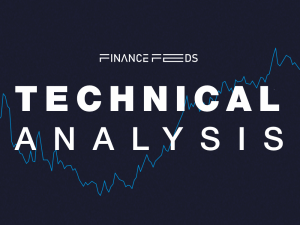Judge denies SEC’s request to control Binance.US assets
A federal judge presiding over the US Securities and Exchange Commission’s case against Binance has decided not to grant a temporary restraining order to freeze the assets of its US affiliate.

Judge Amy Berman Jackson of the D.C. District Court denied the SEC’s request and urged the agency to engage in further negotiations with Binance.US regarding operational limits. The ruling allows the American arm of the crypto giant to continue its operations while defending itself against charges it violated securities laws.
During the court hearing, the SEC claimed that controlling Binance.US’ assets was crucial to safeguard roughly $2.2 billion in customer assets. The agency cited concerns over Binance.US’ murky relationship with its global parent and alleged discrepancies in the control of assets within the crypto empire.
On its part, Binance.US argued that a freeze without exemptions for essential expenses, such as employee salaries and vendor payments, would severely harm its business, effectively becoming a “death sentence” before it could prepare for its legal defense.
Meanwhile, the judge instructed Binance.US to submit a list of its business expenses to the court and directed both parties to continue their negotiations and asked for a status update by the end of the day.
In a crowded courtroom in Washington, the judge questioned SEC attorneys regarding their motion to freeze all of Binance’s assets until the company proves that none of its parent executives, including CEO Changpeng Zhao, had access to its private keys. At times, she appeared frustrated with the SEC’s responses when inquiring about whether any customer funds from Binance.US had actually been transferred out of the United States.
Judge Amy Berman added that the two parties are not significantly distant in finding ways to protect customer funds without completely shutting down the exchange during the course of the SEC’s lawsuit. She referred the matter to a magistrate judge to facilitate the negotiation of a compromise agreement.
The SEC’s bid stemmed from a complaint accusing the world’s largest crypto exchange of running an illegal exchange in the United States and commingling billions of dollars’ worth of American customer funds.
Following the enforcement action, investors have reportedly withdrawn roughly $1.43 billion from Binance and its U.S. affiliate. According to data provided by Nansen, Binance experienced net outflows of $1.34 billion worth of crypto tokens on the Ethereum blockchain. Additionally, its US offshoot, Binance.US, recorded net outflows of $70.8 million.
The US regulatory body claims that both Binance and Zhao intentionally circumvented their own internal controls to enable wealthy US investors to trade on the exchange’s unregulated platform. As a result, Binance earned more than $11 billion in revenue between June 2018 and July 2021, primarily derived from transaction fees.









